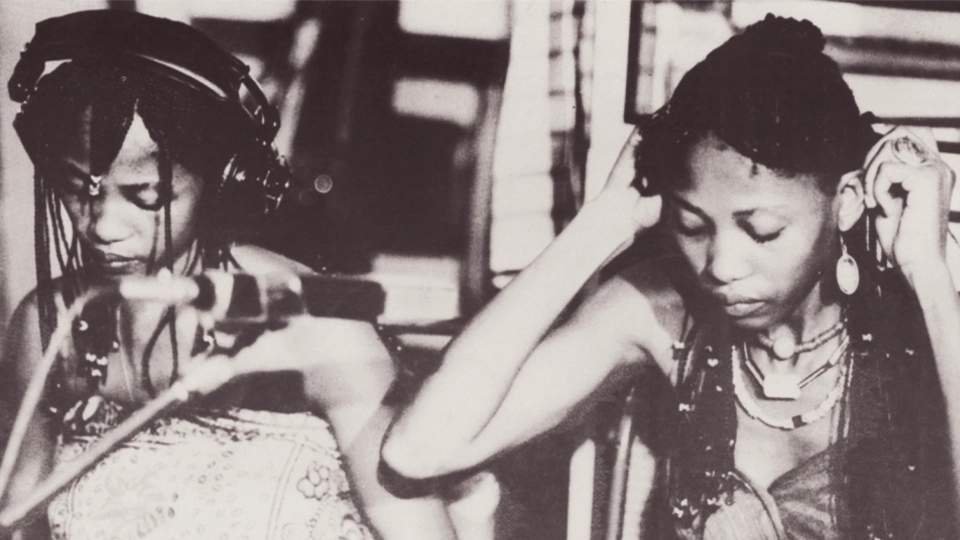Swedish songwriter, producer and music publisher Niclas Molinder has built a career championing creator rights. He has collaborated with music industry titans such as ABBA’s Björn Ulvaeus, with whom he co-founded the collaboration and data tool Session Studio alongside renowned producer Max Martin. This platform helps creators document the critical data required for correct royalty payments and credits. As a key initiator of CLIP (Creators Learn Intellectual Property), Molinder is a strong advocate for music rights and artist education worldwide. In this conversation with WIPO Magazine, he urges music creators to take proactive steps to secure their rightful compensation.
Where does your passion for music rights come from?
Initially, I had no intention of getting involved in music rights. I’ve been a songwriter and producer for more than 20 years, and my focus was always on creating music. But at one point, my partner and I received so many requests for new songs and productions that we couldn’t keep up. To manage the demand, we launched a publishing company and a label, turning our operation into a full-scale production house.
For the first time, I was on the other side of the table, representing other creators. It was up to me to ensure that all registrations were correct. That’s when I truly grasped the complexity of metadata and its crucial role in a song’s lifecycle. I also realized something fundamental: the term “song” that we use so casually is not a legal definition – it’s a combination of a musical work and a sound recording. It became clear that metadata and rights management are essential for ensuring everyone involved in the creation of a song is properly credited and paid. That was my wake-up call.
You mention the other side of the table. Some artists feel they are sitting on the wrong side. At the same time, Spotify claims it paid out US$10 billion in royalties in 2024. What’s going on?
First and foremost, I think it’s a lack of knowledge and education. Too often, instead of seeking solutions, we blame each other. I genuinely don’t believe that any company or organization is deliberately trying to exclude creators for financial gain. The challenge is the system itself – it’s complex and, without the right data in place, payments can be delayed or lost.
What about the other side?
Speaking as a creator myself, if we don’t keep track of who we collaborate with and who contributed to a musical work or sound recording, how can we expect the rest of the industry – publishers, managers, labels, streaming services and collective management organizations (CMOs) – to figure it out for us? The foundation of intellectual property and royalty-based payment relies on everyone having the same understanding of who was involved and how revenue should be divided.
Ultimately, the problem comes down to transparency and communication. What I’d like to emphasize to publishers, labels, managers, CMOs and everyone in the industry is that high-quality metadata needs to be captured early in the creative process. If we get this right from the start, we can establish secure links between identifiers and the money will flow faster and more accurately through the system. That benefits everyone.

So as a music creator, what do I do?
Think of it like any other job. If you work at a restaurant, for example, you need to provide your employer with three key pieces of information to get paid: your social security number, your bank details, and a time report documenting your hours.
Music creators should apply the same mindset. When a song is finished, share your IPI, IPN and ISNI identifiers, agree on the splits, and ensure that everyone involved has the exact same information. I’m not saying this is just on the creators – it concerns everyone in the industry. But before we can discuss downstream improvements, creators need to shift their mindset and recognize the importance of metadata as the essential link to their work.
What I’m talking about can be done with paper and a pen. It’s just something you need to do. What matters most is adopting the right mindset and taking action.
Let's say I have all this information; how do I make sure it is going to be available to the global industry?
My recommendation is to use creator tools that are compatible with the DDEX-RIN standard.
The real challenge is that the process is often too complicated for music creators. That’s why it’s crucial for music industry companies to adopt existing standards and solutions such as Connex, which ensures all metadata is accurate and matched before a song is released.
Give us an example.
Let’s say that you’re a songwriter. Before your song is released, you need to discuss and agree on the split for the musical work. This conversation is often uncomfortable and can create a bad vibe, but avoiding it leads to bigger problems.
If the split isn’t documented, the industry might recognize you as a songwriter but won’t know how to distribute payments. As a result, the money is held until the dispute is resolved. Many songwriters complain about delayed payments, but the truth is, this issue could be easily prevented with a simple agreement at the start which all involved songwriters, publishers and CMOs have access to.
Is this the so-called black box of money not going anywhere because it’s hard to find the creators?
Yes, though sometimes, the money does eventually find its rightful recipient. CMOs, publishers and other industry organizations work hard to distribute royalties as accurately as possible. However, we also need to address the enormous administrative costs and delays caused by incomplete or incorrect data. If a CMO or publisher doesn’t have the necessary metadata, they must manually track it down, which is time-consuming and expensive. Creators need to be more involved in their own administration. The more accurate data we provide upfront, the fewer resources are wasted tracking down missing information later.
Do you see a solution?
The industry needs to fundamentally shift our mindset – real metadata accuracy starts at the source during creation, not through costly and time-consuming corrections downstream long after a song’s release. The industry also needs to take a more active role in education. I attend conferences and music industry events all the time and education is always a hot topic. People constantly say, “We need better education for creators.”
Which is something you provide.
Exactly. With CLIP, we’ve done something unique: we created a free educational platform available in seven languages. Most importantly, all content is approved by the entire music industry. Our advisory board consists of leading music industry trade bodies, which has never happened before on an educational initiative like this. Of course, it takes time to get CLIP fully adopted worldwide, but we need stakeholders across the music industry to step up and support it.
To everyone in the industry: join us. It’s free. It doesn’t cost a single dollar, euro or any other currency. All we ask is that you help spread the word to your creators at scale.
This interview has been edited and condensed from two conversations.



